Morningside Professorship in Chemical Biology
-

Dr Gerald L Chan
"Using Chemistry to probe the processes of life is a fruitful approach to science that is worthy of support. "
Dr Gerald L Chan
-

Professor Dan YANG
Appointed in 2007
Chemistry lured Professor Dan YANG to its Department in 1993. Currently Chair Professor of Chemistry she received her BSc degree from Fudan University, in Shanghai in 1985. Thanks to the US-China Chemistry Graduate Programme, she obtained her Master degree from Columbia University, in 1988, under the guidance of Professor Ronald Breslow.
Professor Yang went on to gain her PhD from Princeton, in 1991 in Professor Daniel Kahne's group and, in the same year, won a postdoctoral fellowship award from the Cancer Research Institute, in New York, to support her two-year research in Professor Stuart Schreiber's group at Harvard.
Here at The University of Hong Kong, Professor Yang's research interests range from synthetic organic chemistry to chemical biology, with particular focus on developing novel, efficient, and environmentally-friendly methods for synthesizing drugs, and using both natural products and synthetic compounds to probe the signal transduction processes in biological systems.
Her award-winning research has won her international recognition in the form of the Mr. and Mrs. Sun Chan Memorial Award in Organic Chemistry, which she received in 2000, and shared with an MIT professor, and the 2001 Bristol-Myers Squibb Foundation's Unrestricted Grants in Synthetic Organic Chemistry. Other recipients of this prestigious award include professors at the Universities of Columbia, Harvard, MIT, Yale, Caltech and Stanford. Although Professor Yang's awards are too numerous to mention in their entirety here she was the recipient of the Croucher Senior Research Fellowship Award in 2001, the National Outstanding Young Scholar Award, from the National Natural Science Foundation of China in 2003, the Eli Lilly Asian Scientific Excellence Award in 2006, and the Novartis Chemistry Lectureship for 2007-2008.
Zhou Guangzhao Professorship in Natural Sciences
-
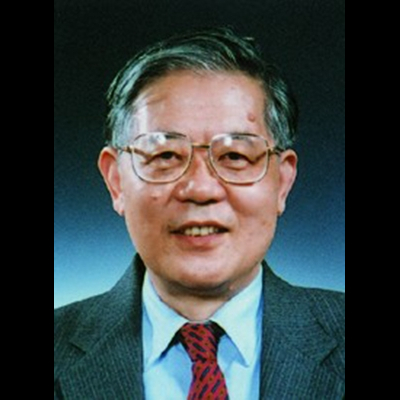
Dr Chung Hon-Dak Council President, Zhou Guangzhao Foundation
"The Foundation is proud to establish the Professorship at HKU in honour of Professor Zhou Guangzhao during this very special year of the Centenary. Professor Zhou, an outstanding scientist in elementary particle physics, is the former President of the Chinese Academy of Sciences and was instrumental in building China's capacity for scientific research. Professor Zhou, hopes that this Professorship in Natural Sciences will promote respect for knowledge and advocate the sciences, hence contribute to China's sustainable development and the international scientific community. "
Dr Chung Hon-Dak
Council President, Zhou Guangzhao Foundation -
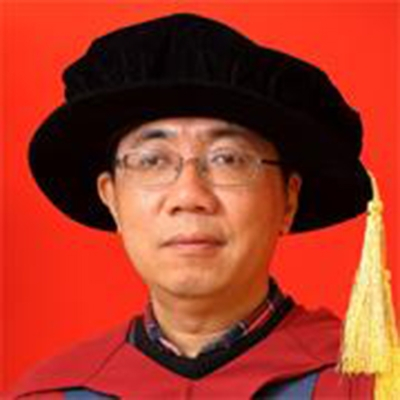
Professor Chi-Ming CHE
Appointed in 2016
Chemistry is the study of the composition, structure, properties and reactions of matter, especially of atomic and molecular systems. It is known as the central science and The University of Hong Kong (HKU) is at the forefront of pioneering research in synthetic chemistry as well as interdisciplinary research between Chemistry, Materials Science, and Medicines.
Professor Chi-Ming CHE, Chair of Chemistry of the Department of Chemistry, HKU, has made inspiring contributions in virtually all areas of chemistry. His innovative research is based on synthetic chemistry, coordination chemistry and photochemistry, and he has made tremendous contributions to integrate coordination chemistry with materials science, reaction methodology, catalysis, and biomedical science.Professor Che has pioneered the chemistry of d8 and d10 metal complexes including their photo-physics and excited state chemistry as well as closed shell metal-metal interactions of d8 and d10 metal ions. He is a leading figure in developing reactive metal-ligand multiple bonded complexes for practical atom and group transfer/insertion reactions and for selective functionalisation of alkanes with practical interest in organic synthesis. He has made efforts to develop translational and interdisciplinary research in the areas of new medicines and new materials. And he has done innovative research to develop new metal medicines for cancer treatment by combining coordination chemistry, organic chemistry, proteomics, and molecular biology.
His research team has invented physiologically stable gold(III) and platinum(II) compounds which are highly potent and can be used for treatment of drug resistant cancers. Recently, he embarked on research into chemical biology of bioactive natural products from Traditional Chinese Medicines (TCM) with a vision to uncover non-toxic natural TCM compounds for cancer treatment. Professor Che is also a world leader in OLED (organic light-emitting diode) materials; his team has successfully developed practical platinum(II) emitters that have already been licensed to national and international display companies with millions US dollars licensed fees.
Professor Che received BSc (1978) and PhD (1982) degrees from HKU and conducted research studies at the California Institute of Technology from 1980 to 1983. He joined the Department of Chemistry at HKU in 1983 and was promoted to a Chair Professor in 1992. He was the Hui Wai Haan Chair of Chemistry from 1999 to 2016 and is the Director of State Key Laboratory of Synthetic Chemistry at HKU.
He is a member of the Chinese Academy of Sciences, a Fellow of the Academy of Sciences for the Developing World, and a Foreign Associate of National Academy of Sciences, USA. He is one of the directors and the founding members as well as the Vice President of the Academy of Sciences of Hong Kong. He has received the First Class Prize of the State Natural Science Award of China, TWAS (the Academy of Sciences for the Developing World) Prize in Chemistry, and RSC (the Royal Society of Chemistry) Centenary Prize. Professor Che was the winner of Leader of the Year (Education/Research Category) in 2007, and he was awarded the Bronze Bauhinia Star from the Hong Kong SAR Government for his continuous contribution to scientific research. Professor Che has been granted, accumulatively, HK$260 million for his research activities. He is listed as one of the Highly Cited Researchers worldwide by ISI HighlyCited.com and his current H-index is 98.
Philip Wong Wilson Wong Professorship in Chemistry and Energy
-

Dr Wilson Wong and Dr Philip Wong
"Chemistry is fundamental to our lives. Advances in chemistry have revolutionised the way we live and how long we live. The study of the intricate relationship between chemistry and energy will enable more efficient use of energy and transform the ways we can achieve environmental and social sustainability."
Dr Wilson Wong and Dr Philip Wong
-
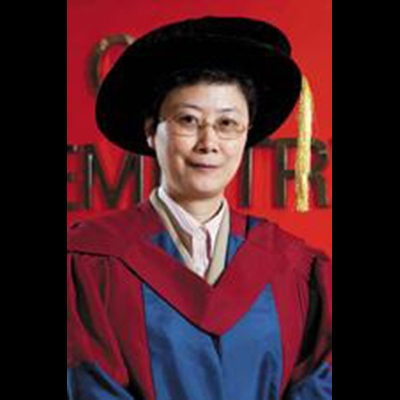
Professor Vivian Wing-Wah YAM
Appointed in 2010The Department of Chemistry is recognised globally as a world-class centre for research and quality teaching. The Department was ranked the top facility of its kind in Hong Kong for seven consecutive years and has won numerous prestigious awards for its scientific achievements. In addition to traditional research programmes of analytical, inorganic, organic and physical chemistry, the Department is also engaged in applications and interdisciplinary studies culminating in active research in materials science, chemical biology, sensors research and environmental science amongst other fields.
Professor Vivian Wing-Wah YAM is currently Chair Professor of Chemistry. Professor Yam obtained her Bachelor and PhD degrees from The University of Hong Kong in 1985 and 1988 respectively. She then joined the Department of Chemistry in 1990 as a lecturer, rising through the academic ranks to be appointed Chair Professor in 1999.
Her main area of research is in inorganic / organometallic syntheses and photochemistry related to luminescence and solar energy conversion. The major focus is on the molecular design and synthesis of novel inorganic and organometallic metal complexes that may find potential applications as functional metal-based molecular materials. Professor Yam’s seminal works on luminescent polynuclear metal complexes and clusters, and light-emitting carbon-rich organometallics have gained her international recognition.
She was elected a Member of the Chinese Academy of Sciences in 2001 at the age of 38 as the youngest member of the Academy, and a Fellow of TWAS, the Academy of Sciences for the Developing World in 2006. She was the first Chinese scientist to be honoured with the RSC Centenary Lectureship and Medal for 2005-06.
Among her many awards, Professor Yam has won the 2005 State Natural Science Award, 2008 Hong Kong Outstanding Women Professionals and Women Entrepreneurs Award, the Hong Kong Fulbright Distinguished Scholar in 2007, the 2002 Ten Outstanding Young Persons of Hong Kong, the Croucher Senior Research Fellowship in 2000, the Japanese Photochemistry Association Lectureship Award for Asian and Oceanian Photochemist (Eikohsha Award) in 2006, and received the HKU Distinguished Research Achievement Award for 2006-07.
She currently serves as the Associate Editor of the international SCI journal, Inorganic Chemistry, which is the top journal in the field of Inorganic Chemistry published by the American Chemical Society. She is the first Asian inorganic chemist, as well as the first inorganic chemist outside the United States, to be invited to serve as Associate Editor of the journal since its first publication in 1962.
Her work has attracted widespread interest and has led to a cover story in Chemical and Engineering News, the official magazine of the American Chemical Society, and numerous invitations to deliver plenary and keynote lectures at international conferences.
Professor Yam has published over 275 journal articles in international SCI journals. A number of her works have been highlighted in Chemical & Engineering News, Science, and as cover pages in leading international journals. According to the ISI Essential Science Indicators and Web of Science, she is listed among the top 1% most cited scientists.
Norman and Cecilia Yip Professorship in Bioinorganic Chemistry
-
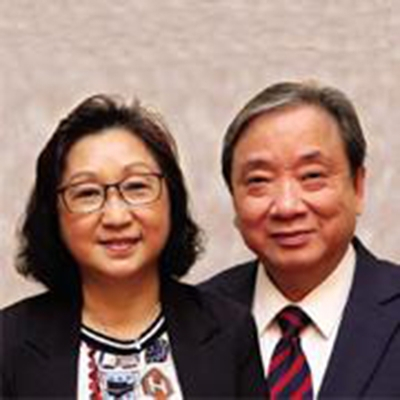
Norman and Cecilia Yip
We established this Endowed Professorship in celebration of the Faculty of Science’s 80th anniversary. Chemistry changed our lives and studying it, in particular, taught me the keys to thinking and action. We hope this Professorship will be the catalyst for even greater outcomes in the study of bioinorganic chemistry.
Norman and Cecilia Yip -
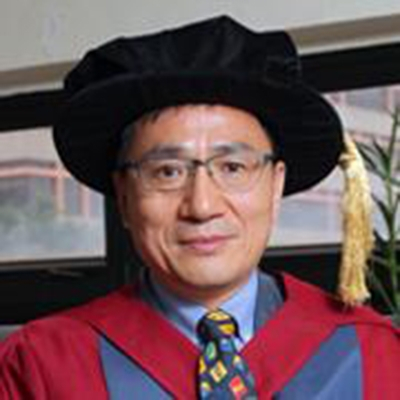
Professor Hongzhe SUN
Appointed in 2019Bioinorganic chemistry is the study of the structures and biological functions of inorganic biological substances, that is, those not containing carbon, such as metals. Essentially, it is a field of science that examines the role of metals in biology.In recent years the field of bioinorganic chemistry has grown significantly and is now one of the major sub-disciplines of inorganic chemistry. It has also entered other areas of the life sciences due to its highly interdisciplinary nature. In particular, bioinorganic chemistry is key to investigating the links between inorganic elements and genomic information.
Professor Hongzhe SUN is Chair of Chemistry at the Department of Chemistry, The University of Hong Kong (HKU), and is also the Norman and Cecilia Yip Professor in Bioinorganic Chemistry.Professor Sun’s research interests lie in the frontier of inorganic chemistry and biology, and medicine. He has recently focused on the structural biology of metallo-proteins, and on metallomics and metalloproteomics. By using chemical biology and metallomic approaches, his research team has identified several key metallo-drug binding proteins and characterised selected metallo-transport and storage proteins in microorganisms that provide a basis for mechanism-based drug design.
The increasing complexity of the problems scientists are trying to solve requires the spirit of collaboration and Professor Sun credits teamwork as the formula for success in producing high impact research. Just last year, a research team led by Professor Sun made a medical breakthrough in developing a drug that can be used to paralyse multi-resistant superbugs. This came after the team discovered that colloidal bismuth subcitrate, a common drug used to treat Helicobacter pylori-related ulcers, could effectively stop superbugs that can cause deadly infections such as bacteremia, pneumonia and wound infections.
As part of the research, the team found that colloidal bismuth subcitrate can also significantly suppress the development of antibiotic resistance, allowing the lifespan of currently-used antibiotics to be extended. The drug allows dosages of antibiotics to be reduced by 90 percent to attain the same level of effectiveness. Drug-resistant infections kill about 700,000 people worldwide each year. The findings were published in Nature Communicationsand Professor Sun has since been granted a US patent.
He received his PhD from the University of London (Birkbeck) in 1996. After two years as a Research Fellow at the University of Edinburgh, he joined the Department of Chemistry at HKU as an Assistant Professor and was promoted to Professor in 2007.
Professor Sun was the recipient of a Croucher Senior Research Fellowship (2010-11), a WuXi AppTech Life Science & Chemistry Research Award (2016), and the UC Berkeley Muetterties Lectureship (2018) in recognition of his pioneering work on metalloproteomics and drug discovery.
He has been the series editor of Metallobiology (published by the Royal Society of Chemistry) since 2010 and has served on the editorial boards of several scientific journals including Metallomics, the Journal of Biological Inorganic Chemistry and BioMetals, and has edited a book entitled Biological Chemistry of Arsenic, Antimony and Bismuth (2011). Professor Sun has also been Chair of the Steering Committee of Asian Biological Inorganic Chemistry since 2006.
